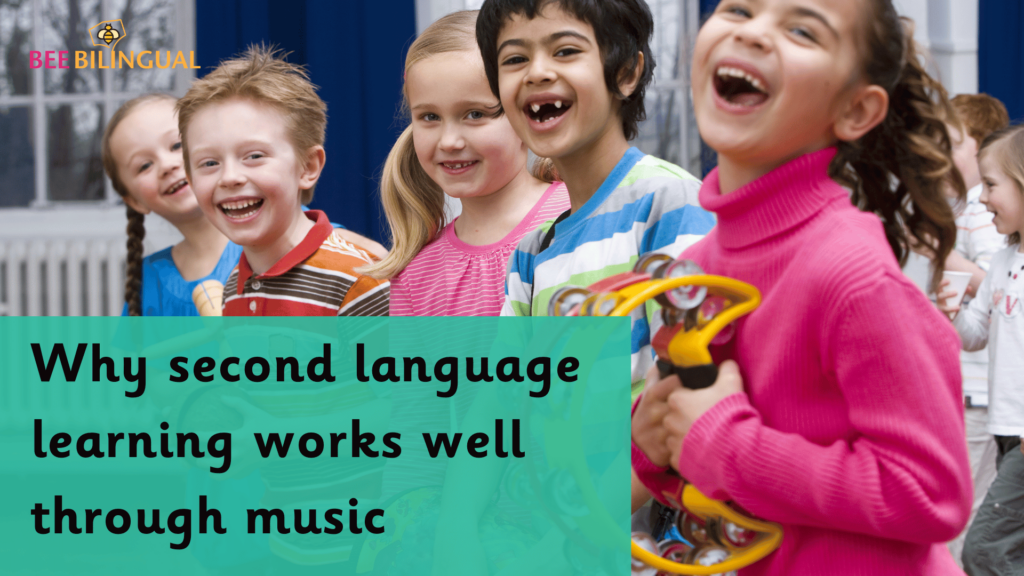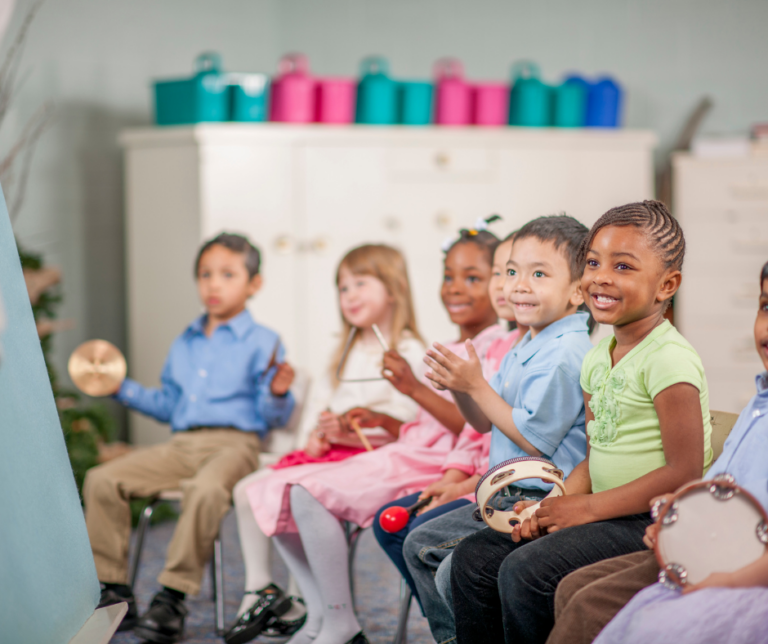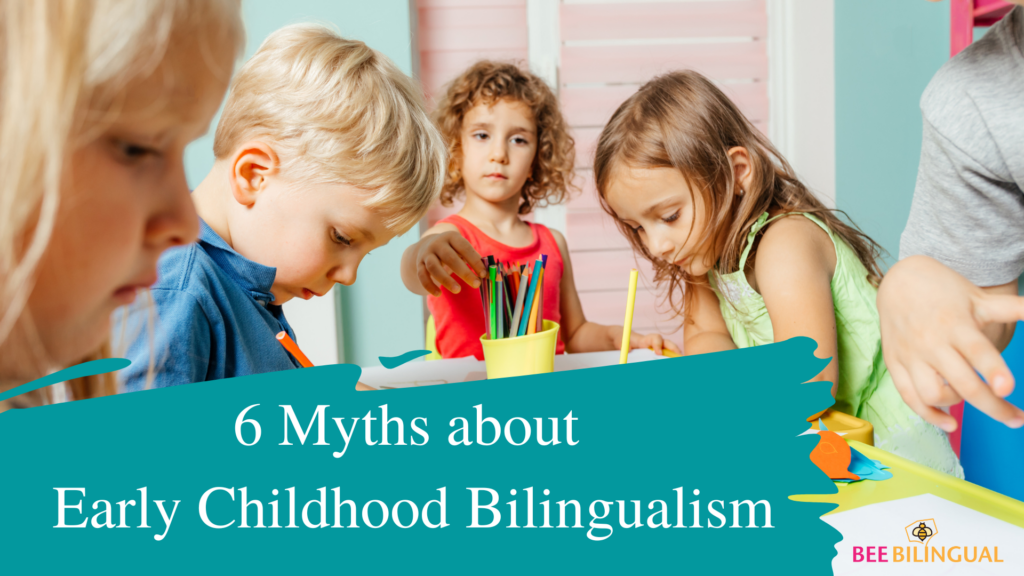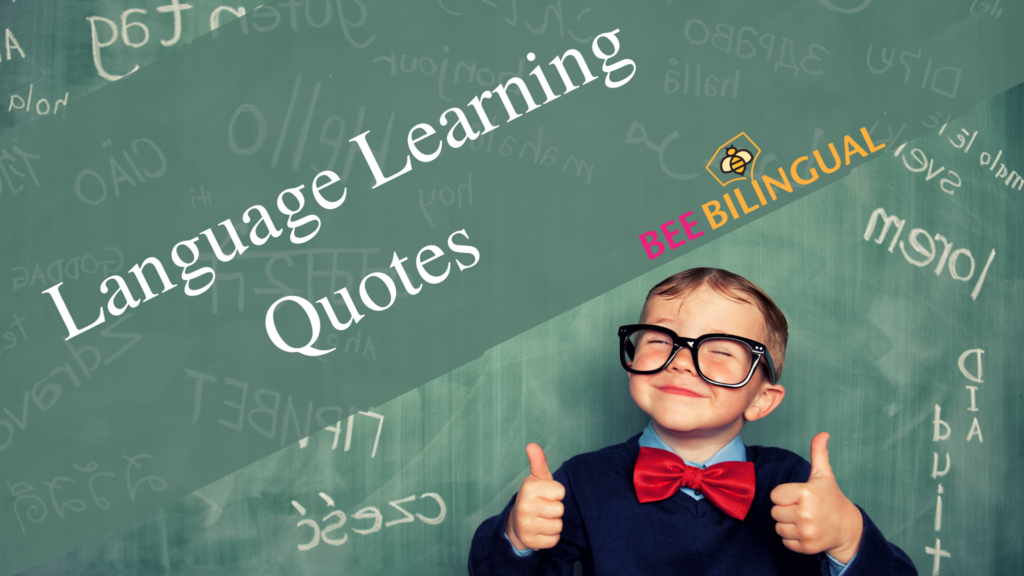Acquiring a second language is never easy, but it can be made much simpler with the help of music! I use music almost weekly in my language lessons. Especially young children, they just love it. The rhythm of the music helps them to internalise certain words and phrases; it works like an icebreaker, and the entire lesson becomes more fun. With some of my students, I even do a weekly dance routine to catchy language learning songs. Yes, you have heard right! There is specific music available (onYouTube you might even find free tunes) for language learners.
I myself teach German, and I have incorporated special German-teaching tunes in my lessons for years. What I always find is that especially difficult words and phrases that my students have a hard time getting their heads around, suddenly become a lot easier to remember if they are sung in the same melodic pattern over and over again. Doing movements (clapping your hands, etc.) to the beat of the music adds an extra layer to the learning process. You can find out more about available songs here.
In these types of musical pieces, repetition is often the main element, which is why I believe music works so well as a supplement to language learning. Furthermore, taking a closer look at lyrics of a song in language lessons with older children and adults is also a great way to introduce more difficult words and structures. I have also used songs from my students’ favourite music genres or artists as a way to make the lyrics more memorable and to create connections between what they already understand in their native language and the words they are trying to learn in a foreign one.
There are many other reasons why music is a great educational tool. The following list is not only suitable for educators but also for parents and carers. Read on to find out more about the benefits of music in language learning.
The benefits of music in language learning
1.Songs are a fantastic pronunciation help
By singing and repeating words in a certain pattern, your students/children may be able to learn the intonations of sentences or phrases much faster than through normal conversation.
2. Nursery rhymes and rhyming songs just can’t get out of your head
Bah, bah, blacksheep, have you any wool? Yes sir, yes sir…… You were able to finish this classic nursery rhyme, right? That’s because the melody and rhythm make it easier to remember. This is exactly what happens when you use music in language lessons! Of course, you have also heard these famous nursery rhymes over and over again since you were little. Rhyming songs make it easier to remember word connections and understand basic grammar structures. Music is such a fantastic educational tool!
3. Memorise more words
In my language lessons with my younger students, we always sing the “Hello” song (in German) together. Every single week! We learn the same words and sentences over and over, until they are firmly fixed in our memories. Repetition is key in language learning and music is a great help to make it easier to remember vocabulary.
4.Dance to the beat!
Dancing to a language-learning song is not only fun, but it’s also an effective way to help your students/children remember the words.
4.Makes lessons more fun
Music can make learning enjoyable and less stressful. You can use a variety of music genres to accommodate different tastes, ages, and levels. However, as mentioned above, it is very important that you choose appropriate music. There are many CDs (yes, that thing from the 90s and early 2000s) as well as downloadable tracks available that are made for bilingual learners of specific age groups.
5. Teaches your students/ children more about another culture
Of course, this point highly depends on what type of music you incorporate into your lessons, but you can introduce cultural aspects like traditional dances and customs while listening to popular musicians or singers with your students.
Music is a great addition to any language learning programme, so why not make it part of yours? As a parent, it doesn’t matter what method you are using, singing songs with your little bilingual learner can be a fantastic way to bond and practise words together. As an educator, you can use it in almost any lesson plan as an engaging activity that will make the words stick in your students’ heads. So, what’s your favourite language-learning song? Let me know in the comments!



